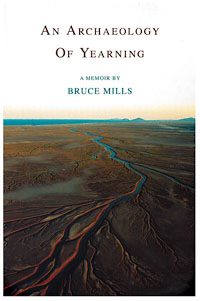Biology professors Jim Langeland ’86 and Blaine Moore join one K student and three K alumni as authors of an important paper that will soon be published in the journal Molecular Biology and Evolution. The co-authors are Nathalie Botezatu ’14, Maddie Gillentine ’13, Ashley (Boehmke) Benson ’08, and Kyle Wilson ’08. All were (or are) biology majors at K, and in the case of some, the scientific work—which describes the evolution of key molecules involved in Alzheimer’s disease—was part of a Senior Individualized Project (SIP). The work is groundbreaking in at least two ways. First, it approaches Alzheimer’s disease from an evolutionary perspective. And second, it illustrates a particular niche approach to research that the scientific environment at K is well positioned to pull off.
“The experiments that culminated in this paper began in 2007 with the SIP work of Benson and Wilson,” says Langeland. “The six-year duration shows that science can take a long time to come to fruition.” That duration derives, in part, from the complementary expertise of the two collaborating labs—Langeland’s expertise in gene evolution and Moore’s background in Alzheimer’s disease research and experience with cellular expression of proteins. According to Langeland, for most of the larger labs the exigency of understanding Alzheimer’s in order to development treatments for it may not favor such an extended timeline or evolutionary approach. Indeed, Moore says, “Most researchers in the Alzheimer’s field are exclusively focused on inhibiting the production of protein fragments that have been linked to the progression of the disease. One of the exciting aspects of this project was the chance to take a broader view of the proteins involved in the disease process.”
A broader view allows for unique approaches (suggesting that time and creativity are the two pillars of the particular niche approach to research for which K is so well-equipped). Six years ago Langeland decided to investigate the evolution of two molecules associated with Alzheimer’s—APP and BACE. BACE acts like a scissors to cut (or cleave) APP. The excess accumulation of one of the “cut pieces” (a.k.a. products or substrates, this particular one known as A-Beta) is linked to the development of the disease. Benson and Wilson sought answers to how far back on the evolutionary tree of life these molecules could be found. Turns out that APP is nearly a billion years old. BACE (and its cleavage effect) is much younger, about 500 million years old. Just down the hall, Moore’s lab had been studying the regulation of enzymes that produce A-Beta, and had well-developed systems for expressing Alzheimer’s proteins and analyzing cleavage products. Put the two together and you have a unique project that would have been unlikely at a larger institution or medical school.
The principle of natural selection suggests that BACE’s action on APP is vital to life in ways we don’t yet understand, according to Langeland. The A-Beta substrate may be some kind of mistake that natural selection is unable to “correct” because Alzheimer’s expresses so late in human lifetimes, usually long after reproductive success has been achieved. Moore says, “It’s essentially a wrong place, wrong time phenomenon. The APP substrate evolves the A-Beta motif, then comes in cellular contact with preexisting BACE. The result is a devastating disease process that is most likely an accidental by-product of some normal, as yet unknown, cellular process.”
Moore and his lab (including Gillentine and Botezatu) conducted an elegant experiment to confirm the importance of the BACE molecule. They expressed the BACE molecule from an organism—in this case a primitive marine dweller called amphioxus—that diverged from the human evolutionary branch some 750 million years ago. Amphioxus has no A-Beta. Then, Moore’s group discovered that amphioxus BACE nevertheless acts as a scissors to the human APP molecule. The result adds evidence to the biological importance (albeit unknown) of BACE’s cleaving action.
According to Langeland, an evolutionary approach to diseases may suggest molecular targets for treatment intervention, and, just as important, the limitation of a non-nuanced approach to potential targets.
The paper is titled “Asynchronous Evolutionary Origins of A-Beta and BACE-1.” The work was supported, in part, by a Great Lakes Colleges Association (GLCA) New Directions Initiative Grant, a program that supports professional growth of mid-career liberal arts faculty, with particular emphasis on projects outside traditional boundaries.


